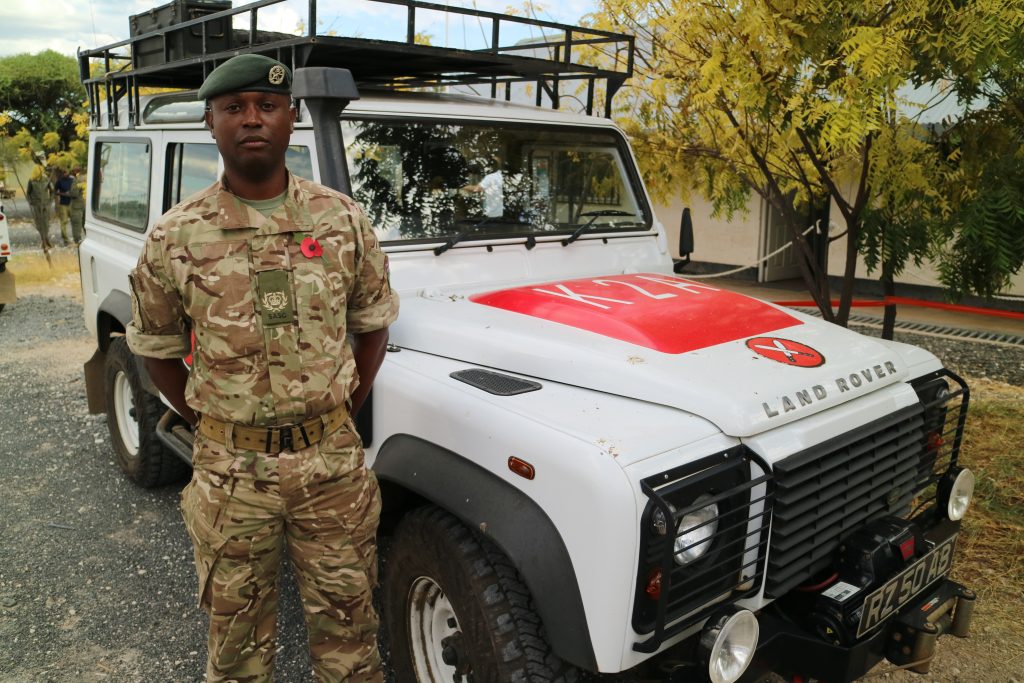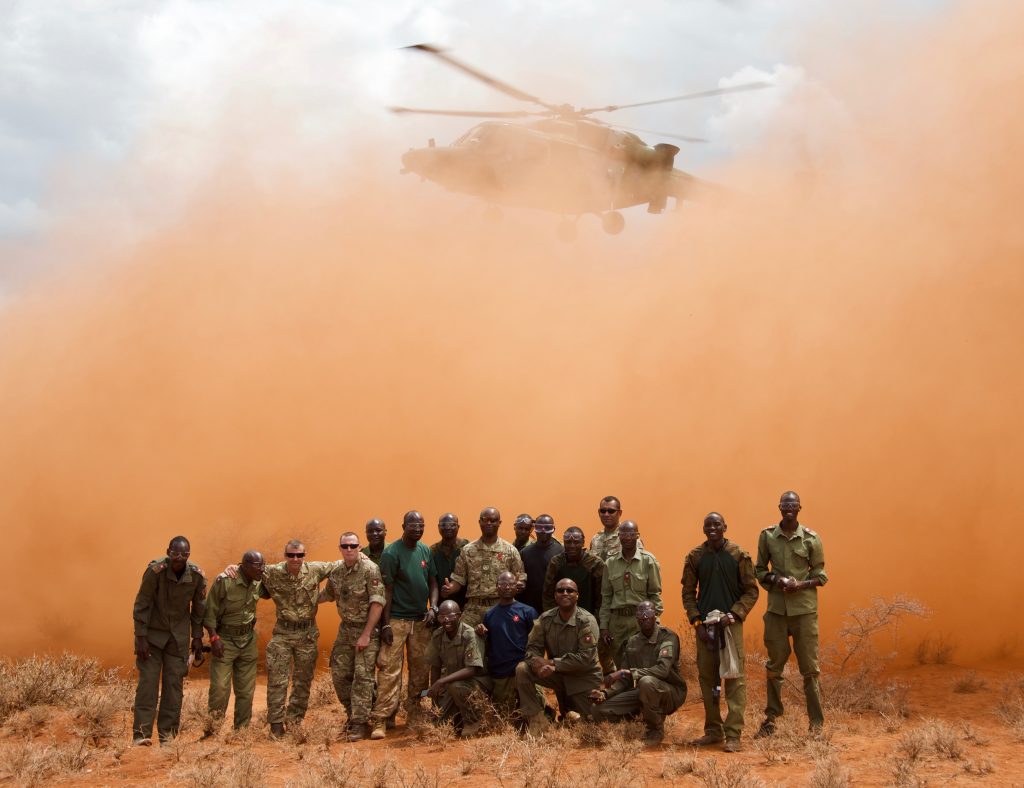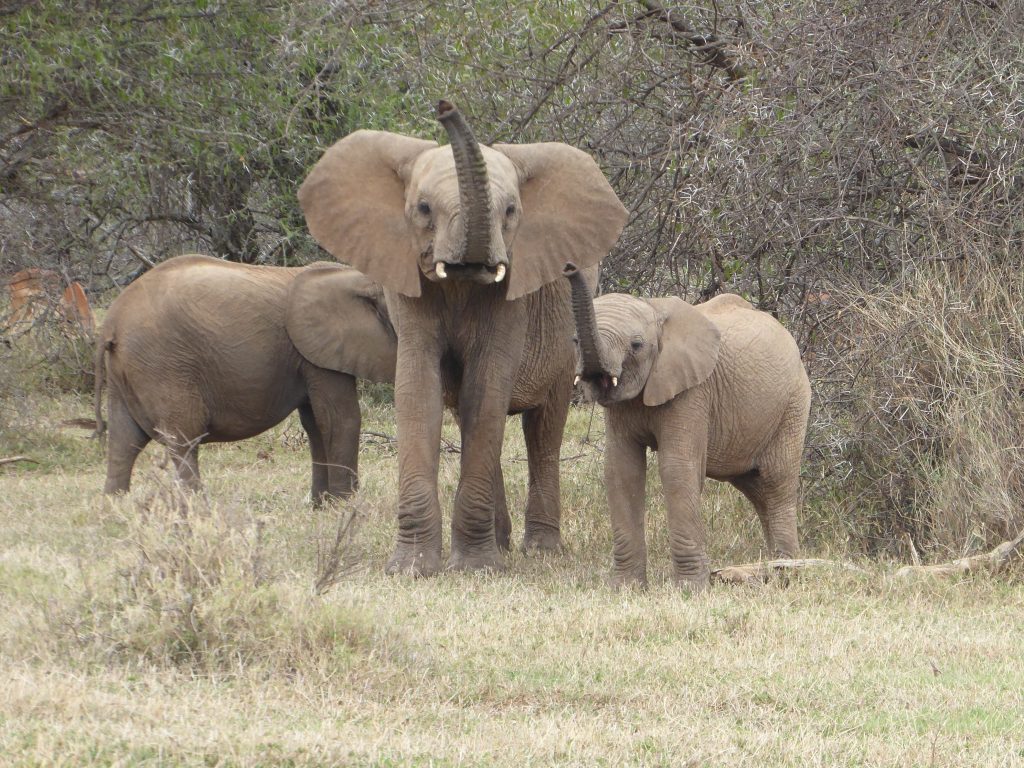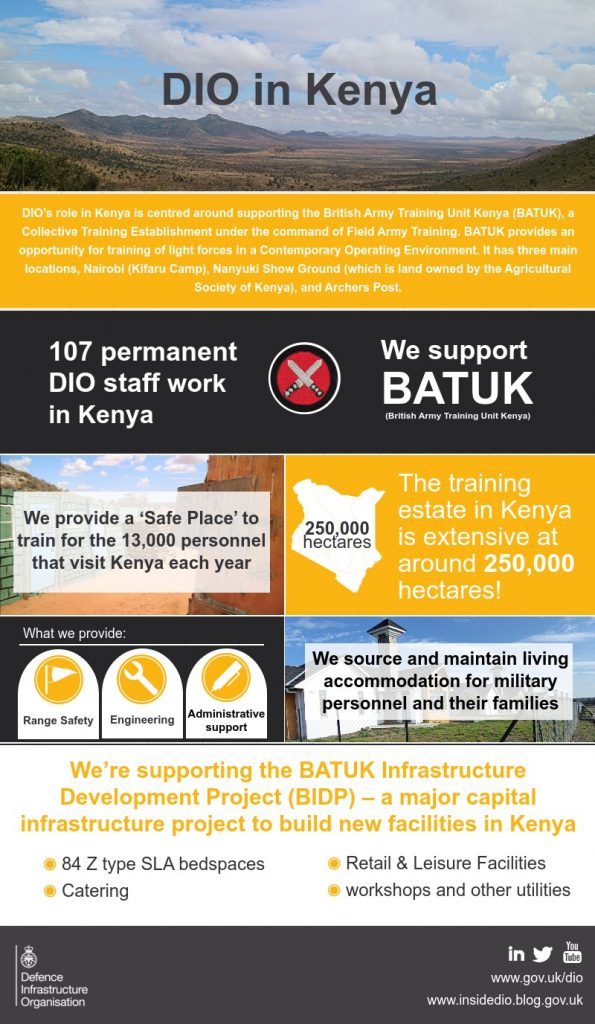Hi. I’m WO2 Dwain Tucker from the Small Arms School Corps. I work in Archer’s Post and Laikipia in Kenya with the DIO Safe Place team as a Deputy Range Safety Officer.
My main role out here is to check that any live fire training that’s being conducted is planned and de-conflicted and that it’s ultimately safe. I’m mainly involved in the planning stages where I really get down into the detail. I have to check all traces, all written instructions and make sure that all the plans that are submitted are safe. If there are any issues identified during the planning phase I’m responsible for sending the plans back to the respective individuals and getting them amended.

Locally Employed Civilians are invaluable to our work
Out here in Kenya we work closely with Locally Employed Civilians (LECs) who we employ as Range Wardens. They’re crucial to our ability to provide the ‘Safe Place’, particularly in Archer’s Post. A lot of people who live in this area are pastoralists; they may not have gone to school and they might not speak Swahili. They set up ‘bomas’ on the training area at night – these are rural enclosures that they set up to protect themselves and their livestock from wild animals – and on training days we have to go out and warn them so they don’t get caught up in live firing.

The biggest challenge…
So, what’s the biggest challenge out here? I guess it’s clearing the ranges so that we can start firing on time, although this is getting easier! Battle Groups come here and run live firing exercises and this is probably the highest level of training they will complete in their careers. What happened in the past was that the locals wouldn’t want to move out of the area and as a result you’d have ranges that weren’t being used. We can’t afford to lose training days. These soldiers have travelled a long way, it’s a key part of their training and for them not to be able to fire because a herder didn’t want to move out of the way could be quite frustrating. I’m pleased to say though that we don’t normally have this problem anymore mainly because of the continued relationship building that our Range Wardens do with the locals.
Building relationships is key
Our relationship with the Kenyan Army has improved hugely over the past few years too. We’re engaging more with them and we’ve employed an ex-Kenyan Warrant Officer who is a Range Officer here for the LECs, so he’s like the Head Range Warden. His understanding of how the Kenyan Army works and how we work is key to our success.
We also go to Nairobi for a Range Conference every six months or so where all the users of the training area gather. There’ll be the Artillery, the Air Force etc and we all work together to agree who will use the training area and at what time. The Range Conference has really helped us to plan and also gives us an opportunity to identify issues that we may have had in the past, and agree to ways that we can improve.

It’s pretty awesome being out here in Kenya. The weather’s warm, the wildlife is amazing and I enjoy a good quality of life. I think for me the one thing that I really value is the ability to be able to plan my life. The military exercises are set in stone out here, unlike in the UK where there can be last minute changes, so my family and I can plan our days and enjoy a great quality of life!
